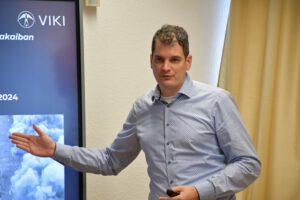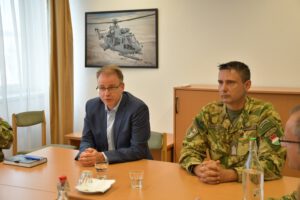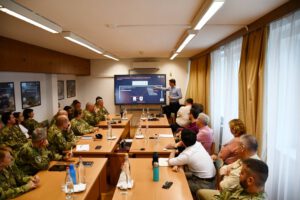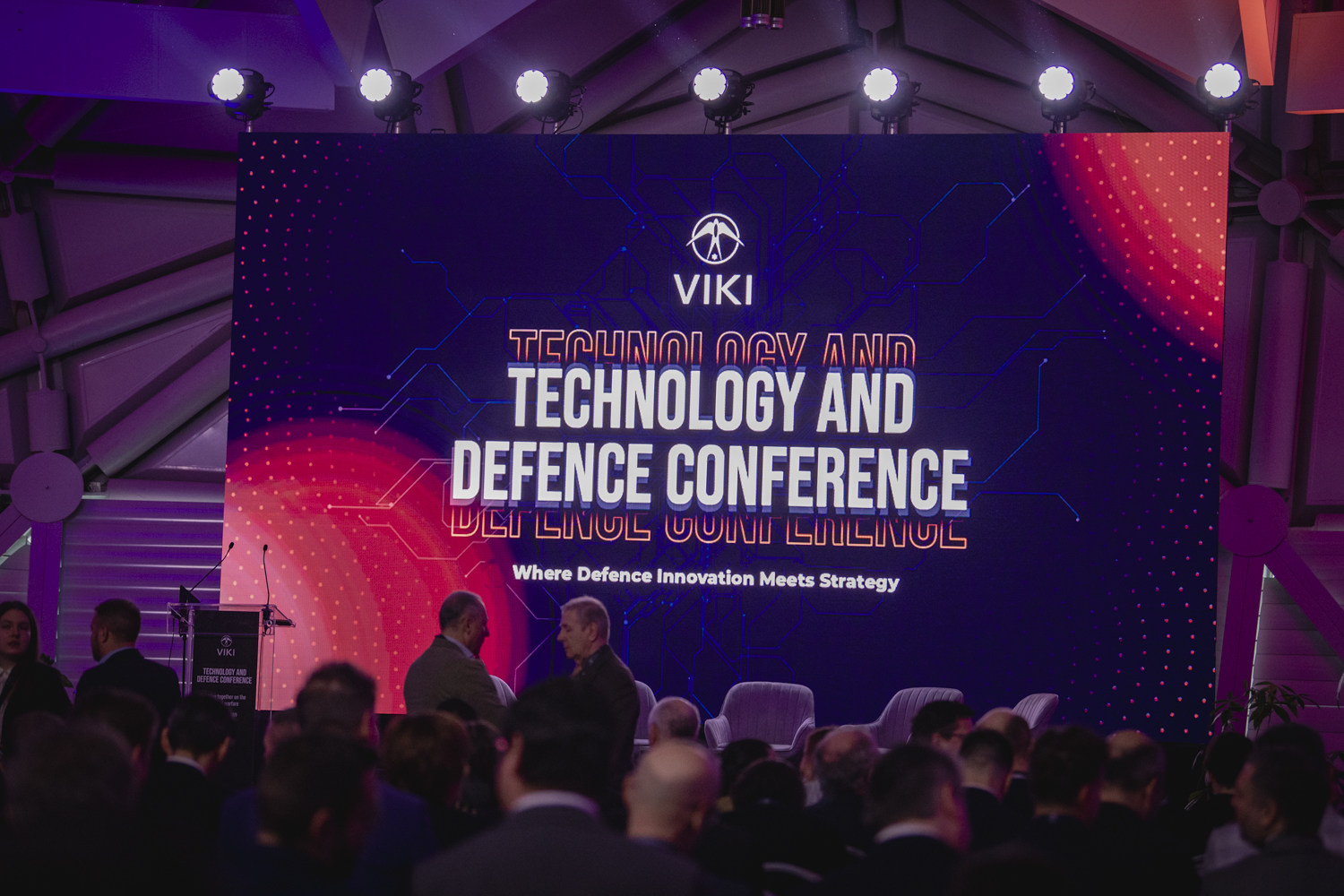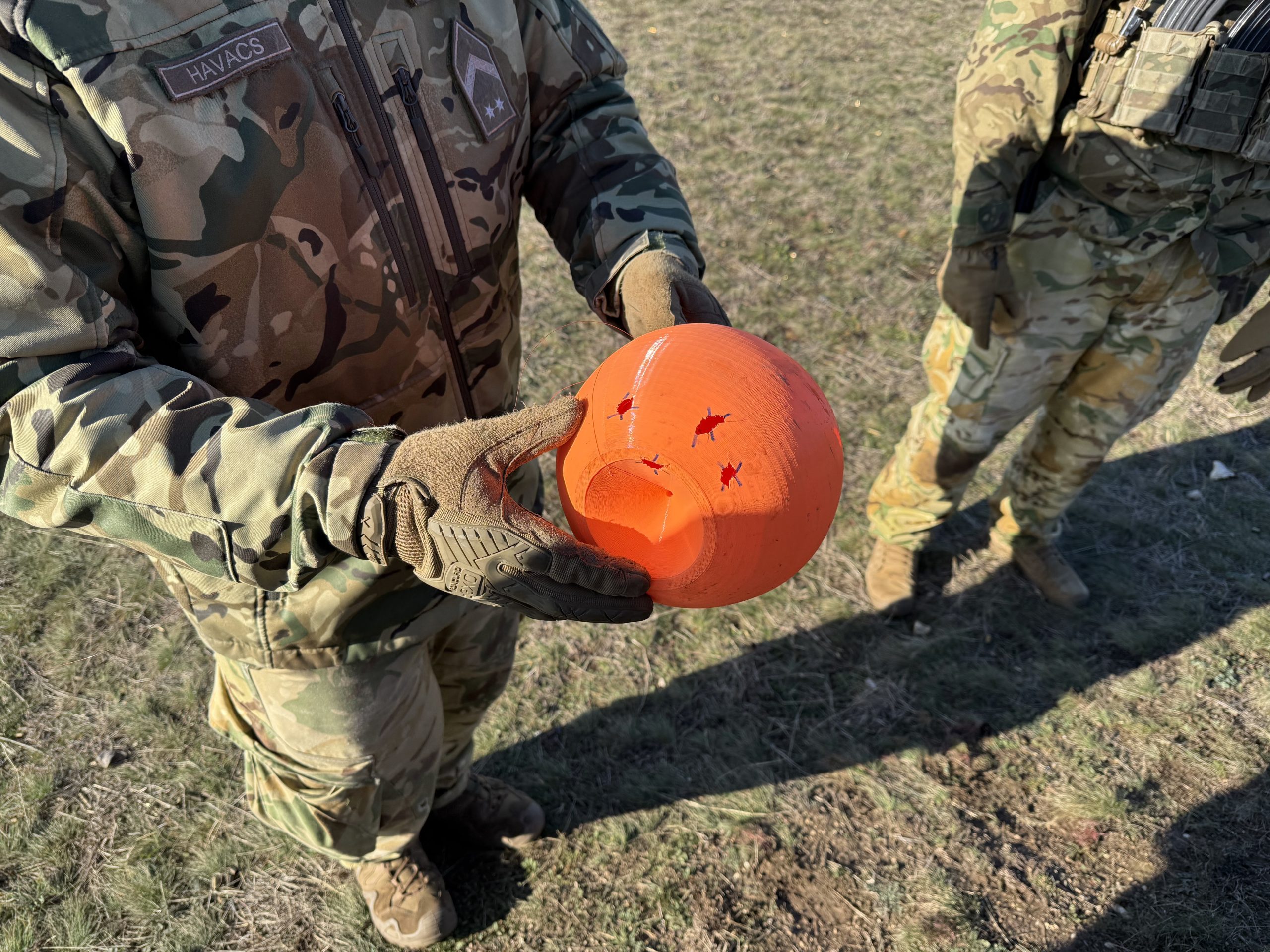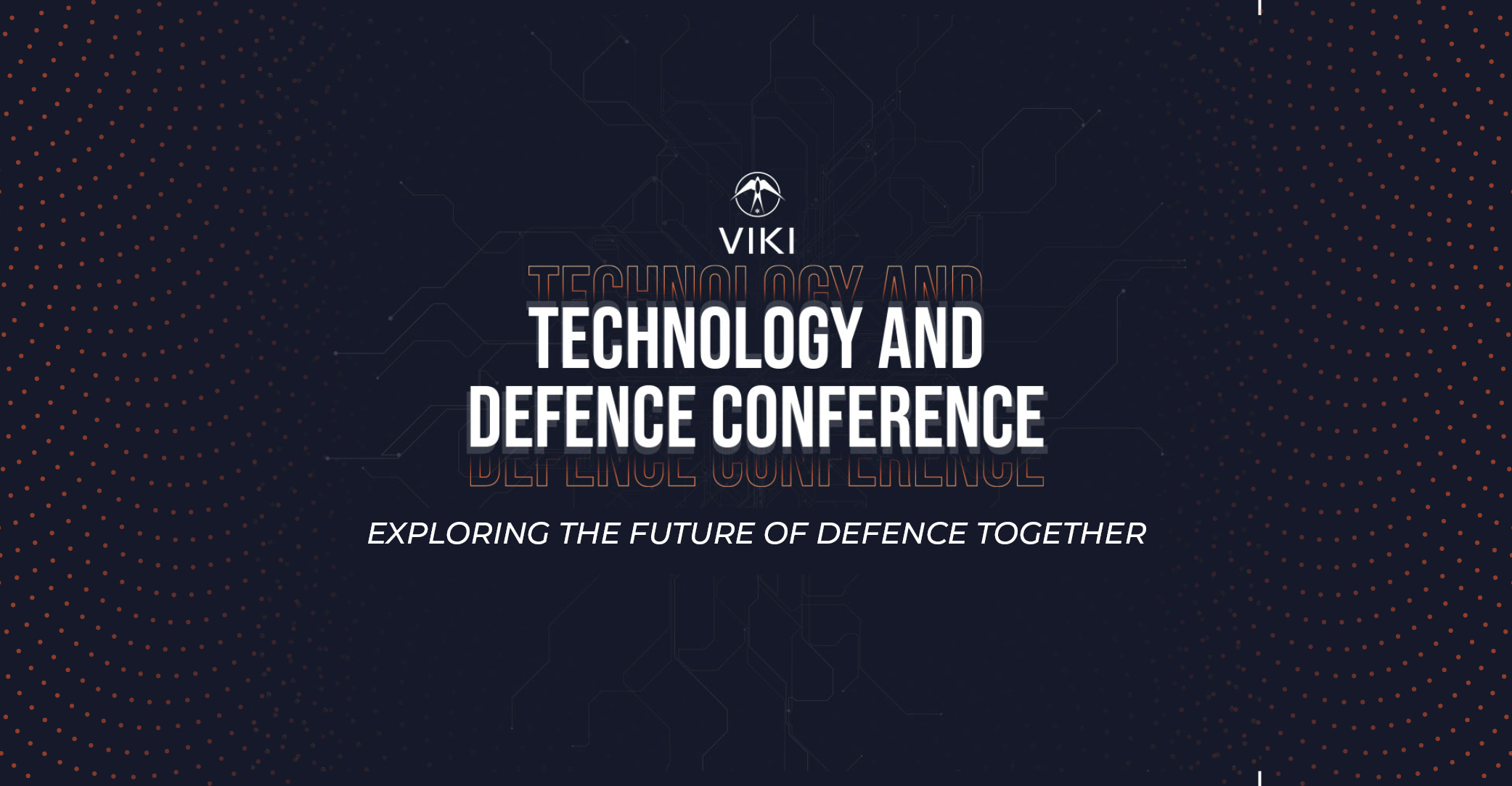What might warfare look like twenty years from now? What security challenges will we face in 2045? These were the central questions explored at our recent professional conference, where researchers, military leaders, and defence experts came together to outline possible future scenarios.
The event was opened by Dr. Gergely Németh, CEO of VIKI, who emphasized that interpreting future security trends becomes truly meaningful when diverse perspectives are brought into dialogue. According to him, genuine insight and long-term planning can only emerge from this kind of exchange. Personal presence, professional discussion, and the sharing of ideas are essential to this process.
Colonel Ákos Tajti, Commander of the Hungarian Defence Forces Transformation Command, highlighted in his keynote that the military must not only adapt to change but also play an active role in shaping it. “Today’s soldiers must be open to new ways of thinking,” he said, “and capable of understanding global developments beyond traditional frameworks.”
The morning session featured a lecture by Dr. Ferenc Kaiser titled The World in 2045, offering a comprehensive overview of anticipated geopolitical, societal, and technological transformations. Following this, Gábor Mészáros, VIKI’s Director of Defence Research, explored the growing military role of artificial intelligence, focusing on the rise of AI-driven systems and their strategic implications.
In the afternoon, a roundtable discussion brought participants together to share real-world experiences, sketch out new models of warfare, and collaboratively reflect on how best to prepare for the complex security challenges of the future.
For our institute, events like this are of paramount importance—not only to provide a scientific outlook but also to foster ongoing, active dialogue within the defence community. By doing so, we aim to support the integrated development of strategic thinking, planning, and innovation.
